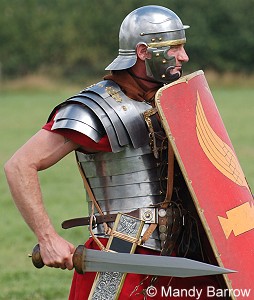
Have you ever wondered how people end up doing the unthinkable? You watch the news about someone who orchestrated the death of their spouse and wonder how they ended up there? How would someone who loved so affectionately hate so deeply? Or think about the man caught up in addiction and is in and out of rehab. How did they end up there? What about the pastor defrauding his congregants in broad daylight? How on earth did they get there?
Most of us tend to think that such people are intrinsically bad. As if they were born evil and wretched unlike “us”. Others imagine it happened overnight. You’ll hear them say they were so in love, I can’t believe he would do that. That this man was actually a staunch believer before he fell into alcoholism. That this pastor was such a caring man. Many would defend such people unable to see how they’d fall in so deep. But I think we forget nobody just wakes up and decides to harm their loved ones. Nobody falls into addiction within a day. Not many pastors set out to defraud their congregants. No, the journey to ruin starts with a slow slippery slope.
The enemy begins with making sin familiar before he moves to acceptable and lands on habit.
The devil never comes wearing horns and holding a fork otherwise we’d run away from him. Instead, he sends friendly emissaries in the name of lighter temptations. It starts with a little greed here which looks situationally acceptable. A small lie that harms no one. A glance over that X-rated movie and before long we are hooked. The biggest battle for every addiction whether for money, power, fame or sex happens on the slow slippery slope. The enemy begins with making sin familiar before he moves to acceptable and lands on habit. Sadly, many of our attempts at behaviour change target the last stage while saying little of the slippery slope.
Our biblical application tends to condemn the man who sleeps with his neighbour while leaving the man who is conceiving it in his heart. We go for, don’t do that when we should start with, give no foothold to that thought. We wait until the fruit is ripe when we should have dealt with the roots. In truth, though nothing is impossible for the word of God applied by the Spirit of God, we have better luck saving ourselves before we descend on the slow slippery slope of destruction. It is on that first plain when sin looks attractive and harmless that we should bring out all our big guns and kill it.
If you want to kill these giants you have to start by starving them out and do so early enough. Your only chance, humanly speaking, is before that descent down the slope of destruction.
Sin starts so innocently that we would confuse it for a friend. It begins with such an allure it looks like our salvation. But like the proverbial giraffe, all it needs is to put its head in the house before it demands us to accommodate the whole body. Murder begins with a bit of “righteous” anger. Adultery is the fruit of little uncontrolled passions. Porn addiction starts with just a few glances over the steamy scene. The greed that kills begins with harmless intention and a combo of a little selfish desire. If you want to kill these giants you have to start by starving them out and do so early enough. Your only chance, humanly speaking, is before that descent down the slope of destruction. But praise God he still offers a fighting chance later only we may have to carry such many scars for a lifetime. Kill sin when it’s still young and kill it completely.







